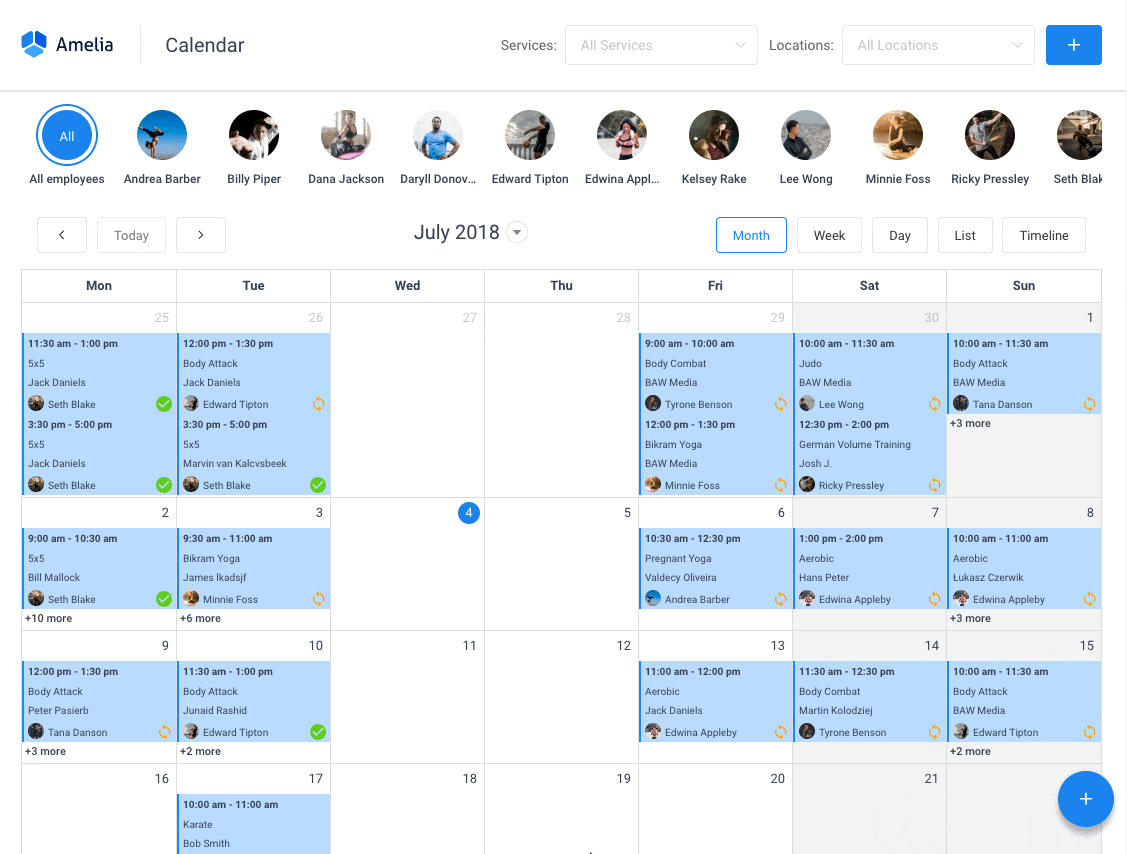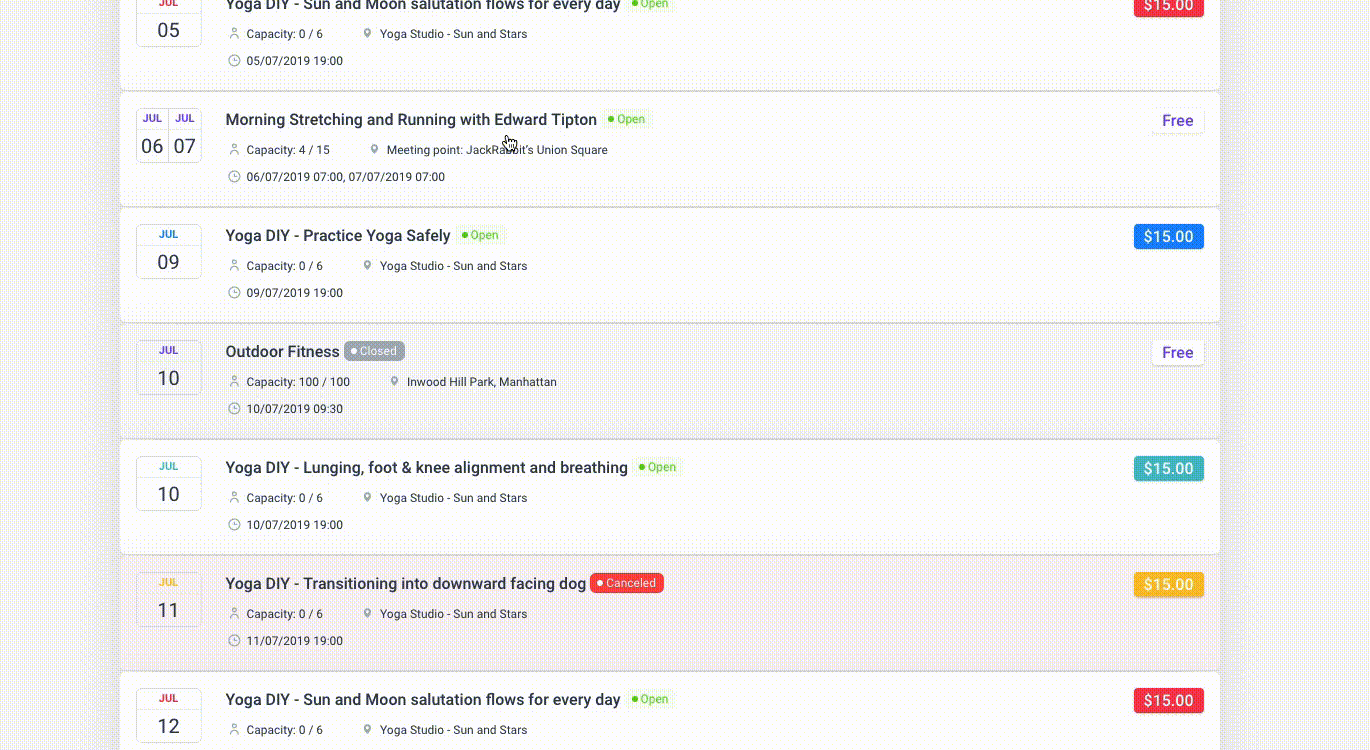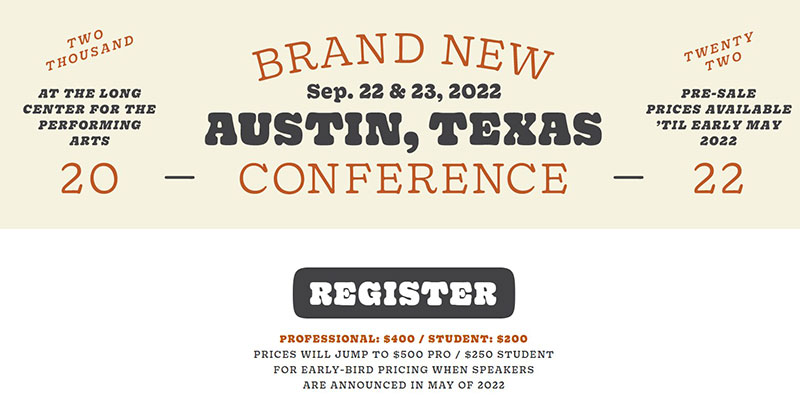Imagine turning your passion for event planning into a lucrative income stream. Whether it’s a high-energy music festival, an intimate workshop, or a corporate conference, the potential to generate serious revenue is at your fingertips. But how do you transform an event from a fun gathering into a profitable business?
In this guide, you’ll discover exactly how to make money hosting events and which types of events are the most profitable to organize, so you can start cashing in on the opportunities waiting for you.
Most Profitable Events to Organize
The best part of hosting events is that almost anyone can do it. Another advantage is that the cost of hosting a small event is minor compared to starting a business. And the cost of hosting a virtual event is even lower than in-person.
Another good thing about events is that there is a wide range of event concepts. Leave your comfort zone and be creative, opening up more possibilities.
Here are some in-person and virtual, but profitable event ideas:
Conferences and trade shows
Conferences and trade shows are some of the most profitable events to organize because they target specific industries and bring together professionals, companies, and enthusiasts in one place. Here’s why they offer such high earning potential and how to maximize profits:
High ticket prices
Conferences are often seen as essential learning and networking opportunities for attendees. Businesses and individuals are willing to pay a premium for tickets, especially when the event features keynote speakers, workshops, and industry panels. Offering early-bird pricing or VIP packages with additional perks can further boost ticket sales.
Sponsorships
Sponsorship deals are a significant revenue stream for conferences and trade shows. Companies are eager to showcase their products and services to a targeted audience. Sponsorship packages can include everything from branded booths and promotional materials to speaking opportunities and online visibility through the event’s marketing campaigns.
Exhibitor fees
Exhibitors are often key participants in trade shows, paying substantial fees for booth space. The more foot traffic and relevance your event offers, the higher the exhibitor fee you can charge. You can also create tiered pricing for prime spots, such as booths near entrances or main stages, providing more visibility for exhibitors willing to invest.
Workshops and breakout sessions
Hosting exclusive, in-depth workshops or breakout sessions within the conference can drive additional revenue. Attendees often pay extra for hands-on training, specialized knowledge, or the chance to engage more personally with industry experts. Offering different ticket tiers for these sessions allows you to increase profitability without raising the general admission price.
Merchandise sales
Conferences also provide a perfect opportunity to sell branded merchandise, from t-shirts and notebooks to more premium items like tech accessories. Partnering with exhibitors or sponsors to sell co-branded products can create additional revenue streams while enhancing the attendee experience.
Networking and after-party events
Post-conference networking or after-party events are another area to monetize. Offering exclusive entry to VIPs or charging extra for these events can bring in more profits while providing attendees additional value. These social settings often lead to stronger industry connections, adding another incentive for attendees to pay more for access.
Digital content and access
In the post-pandemic world, hybrid events combining in-person and virtual elements have become highly popular. Offering live streaming for remote attendees and recording sessions for later viewing allows you to sell digital access to those who can’t attend in person. These virtual tickets are typically cheaper but can reach a wider audience, adding to your revenue without additional event costs.
Networking events

Networking events can include dinners, cocktail parties, and the like. They are one of the easiest and most cost-effective events to host.
It is easy to host because people like to meet new acquaintances. They especially like it if it means an opportunity to grow their business.
Another aspect that makes networking events easy to host is the high demand for these events in major cities. This means that you can sell premium tickets and generate more revenue.
Because there is such a high demand for networking events, it is easy to promote them. So learning how to host a networking event online will bring in even more money, yet it might not have the same effect.
Speaking engagements

Authors and celebrities can fill an event room in no time. This creates a great revenue opportunity for event organizers. All they need to do is match the speaker with the right audience.
A sales proposal is a powerful tool that you can use to engage with your target audience. Writing it in the tone of voice they are most likely going to respond best, will help convince them into buying what you’re trying to sell.
The equation for making a profit with speaking engagements is simple. Take the celebrities’ speaking fee plus the venue fee and divide it by how many seats are available. Some event organizers also use speaking events to sell merchandise.
Experience events

Experience events involve activities or vacations that attendees can experience. These events can be a little tricky to plan but are sure to generate a lot of interest.
Find something fun to do, like wine tasting, cooking classes, skydiving, parasailing, etc. Call around to see how much that activity would cost for an individual and if there is a group discount.
Workshops and seminars

Workshops and seminars are highly profitable, especially when they target niche audiences or offer specialized knowledge. These events can be organized with relatively low overhead, making them an excellent choice for those looking to generate income while keeping costs manageable.
Premium ticket prices
Attendees often pay premium prices to attend workshops and seminars that promise valuable insights, certifications, or skill development. Depending on the level of expertise provided, you can charge significantly higher prices for intimate, hands-on sessions compared to large-scale conferences.
Low operational costs
Unlike large events that require substantial investments in venue space and entertainment, workshops and seminars can often be hosted in smaller venues or even virtually. This allows for reduced operational costs while still offering high-value experiences to attendees. Plus, you can limit the number of participants to create a more exclusive and personalized atmosphere, which often justifies higher ticket prices.
Sponsorships and partnerships
Even smaller events like workshops can attract sponsorships, especially if they are aligned with industry trends or a specific skill set that companies want to promote. Sponsors may cover costs or pay for branding opportunities, increasing your profitability while enhancing the attendee experience.
Upselling additional services
Workshops and seminars provide a natural setting for upselling additional services such as one-on-one consultations, extended learning packages, or digital materials. These add-ons can significantly increase the overall revenue per attendee while offering more value.
Merchandise and digital content sales
Offering branded merchandise or access to exclusive digital content, like recorded sessions or supplemental materials, can add another layer of profitability. These extras appeal to attendees who want to revisit the event’s content or extend their learning beyond the initial session.
Corporate events
Corporate events are highly profitable due to the substantial budgets businesses allocate for activities like conferences, team-building retreats, product launches, and company parties. These events offer multiple opportunities for revenue generation while ensuring a professional experience for clients.
High client budgets
Companies often have large budgets dedicated to corporate events, particularly for important milestones like product launches or annual retreats. This means you can charge premium rates for organizing and executing the event, especially if you can provide a high level of professionalism and customization.
Repeat business
Corporate clients frequently hold multiple events throughout the year, and successful execution of one can lead to repeat business and long-term partnerships. Building strong relationships with corporate clients increases the chances of securing ongoing work and generating a steady revenue stream.
Sponsorship opportunities
Corporate events can attract sponsors who want to gain exposure to a high-level, professional audience. This is particularly true for product launches and industry-specific conferences. Offering tiered sponsorship packages can help you secure additional funding while giving sponsors the visibility they need.
Venue and catering fees
In addition to charging for event planning services, corporate events allow you to profit from managing venue and catering logistics. You can mark up venue booking fees or earn commissions from vendors, which contributes to your overall revenue. Providing all-inclusive packages can also simplify the process for corporate clients while increasing your profit margins.
Team-building activities and workshops
Offering team-building activities or educational workshops as part of corporate events adds value and can justify higher pricing. These activities are often in high demand as companies invest in improving employee performance and morale, creating a lucrative niche for event organizers.
Branded merchandise and swag
Corporate events often include branded merchandise, giveaways, or promotional items for attendees. Managing the production and distribution of these items can provide another revenue stream, especially if you can secure bulk production deals.
Sell more event tickets with Amelia
If you’re looking to boost your ticket sales and streamline your event management process, Amelia’s event management plugin is your ideal solution. Amelia is designed to simplify and enhance the way you handle event bookings, ensuring a seamless experience for both you and your attendees.
Streamlined booking process
Amelia offers an intuitive booking system that makes purchasing tickets a breeze for your attendees. With a user-friendly interface, customers can quickly view available events, select their tickets, and complete their purchase—all in a few simple steps. This streamlined process helps reduce cart abandonment and increase conversion rates.
Customizable ticket options
With Amelia, you can create and manage a variety of ticket types to cater to different attendee needs. Whether you’re offering general admission, VIP passes, or early-bird specials, Amelia’s flexible ticketing system allows you to set up and manage these options effortlessly. This flexibility can attract a broader audience and maximize your ticket sales.
Automated confirmation and reminders
Amelia’s automated email confirmations and reminders help keep your attendees engaged and informed. After purchasing tickets, customers receive instant confirmation emails with all the event details. Automated reminders sent closer to the event date help reduce no-shows and keep your event top-of-mind for attendees.
Real-time availability and updates
The plugin provides real-time updates on ticket availability, ensuring that your attendees have accurate information and can make informed decisions. This feature helps prevent overbooking and allows you to manage ticket sales efficiently, optimizing your revenue.
Integration with payment gateways
Amelia supports integration with multiple payment gateways, making it easy for your customers to pay using their preferred methods. Whether it’s credit cards, PayPal, or other payment options, Amelia ensures secure and smooth transactions, enhancing the overall booking experience.
Comprehensive reporting and analytics
Track your ticket sales and event performance with Amelia’s comprehensive reporting features. You can access detailed analytics on ticket sales, revenue, and attendee demographics, allowing you to make data-driven decisions and optimize your event strategies for future success.
Seamless event management
Beyond ticket sales, Amelia offers robust event management tools to help you coordinate every aspect of your event. From managing schedules and venues to handling attendee lists and communications, Amelia provides a centralized platform to ensure everything runs smoothly.
Amelia also has an Events Calendar module integrated within its features.
You can now automate your event bookings as well. To be more precise, it means that you will be able to schedule a single day, a multi-day, and also recurring events with Amelia.
Did we mention that you can manage multiple locations and that you have Google Calendar integration?
All of these and much more are under only one license, no add-ons are needed.
Want to know more? Check out Amelia’s awesome features to see what you are missing.
Panel events

Another popular event is a panel event, like an interview or discussion. In general, two to five professionals are interviewed in front of a crowd.
These events usually include time allotted before and after the interview for attendees to network. Due to its nature, it is easy to host panel events online.
Professionals and attendees can connect to an online platform and hold online events easily. With the help of private or breakout rooms, attendees can even network during the online panel event.
Additionally, integrating a podcast into your event can provide extended engagement with your audience. By offering exclusive content, interviews, or recaps through your podcast, you can create another layer of interaction. This also opens opportunities for monetizing the podcast through sponsorships, ad placements, or premium episodes, further boosting the event’s revenue potential.
Panel events are an excellent choice for those looking to create engaging, knowledge-driven experiences while generating substantial revenue. These events typically feature industry experts discussing relevant topics in front of an audience, making them a great fit for various sectors, including business, technology, education, and entertainment.
Moderate ticket prices
Panel events typically draw attendees interested in gaining insights from experts or thought leaders. While ticket prices might not be as high as conferences, you can still charge moderate fees, especially if the panel includes well-known figures or covers trending topics. Offering VIP seating or exclusive meet-and-greet opportunities can further increase revenue.
Sponsorship opportunities
Panel events provide excellent sponsorship opportunities for companies looking to align themselves with specific industries or trends. Sponsors can contribute to the event in various ways, from branding on promotional materials to sponsoring individual panels or speaker sessions. Offering exclusive sponsor packages ensures greater visibility and engagement with the target audience.
Low operational costs
Unlike large conferences, panel events typically require fewer resources to organize. You can often hold these events in smaller venues, with minimal stage setup and AV equipment. This allows you to keep operational costs low while still delivering a high-quality experience for attendees.
Networking sessions
Panel events can include additional networking sessions or post-panel discussions, where attendees can interact with the speakers and fellow participants. Charging extra for these exclusive networking opportunities, such as VIP mixers or breakout sessions, adds a profitable layer to your event.
Digital content and recordings
Recording panel sessions and selling access to the content afterward offers an excellent revenue stream, particularly if your event covers timely or valuable industry topics. You can sell access to recorded panels to attendees who missed the live event or offer it as part of a digital package to extend your audience beyond those in attendance.
Gaming tournaments

Gaming tournaments are a profit goldmine. They are so successful because they allow hobbyists to compete for honor and a prize.
Not only are the attendees doing something they love, but they also might make money from it. Playing on stage is a dream for most gamers. There should be no issue in attracting hundreds of people to pay a fee to participate in a gaming tournament.
Gaming tournaments can range from poker games to video games and anything in between. Every city has a market for gamers looking to play on a bigger stage.
Music festivals
Music festivals are incredibly profitable events to organize, offering multiple streams of revenue through ticket sales, sponsorships, merchandise, and more. With the right planning and a strong lineup of performers, these festivals can attract massive crowds and generate significant profits.
High demand for tickets
Music festivals can command high ticket prices, especially if you manage to secure popular artists or create a buzzworthy experience. Offering multiple ticket tiers, such as general admission, VIP packages, and backstage access, can help maximize ticket revenue. Early-bird discounts and group packages can also incentivize more people to buy tickets in advance, ensuring upfront revenue.
Sponsorship opportunities
Sponsorships play a major role in driving profits for music festivals. Brands are eager to get in front of large, diverse audiences, and festivals offer them a unique opportunity to do so. Sponsors can contribute to various elements of the event, including stages, VIP areas, food and drink booths, or branded merchandise. Offering different sponsorship packages allows brands to choose how prominently they want to feature their products or services.
Food and beverage sales
Food and beverage vendors provide another lucrative revenue stream. Festivals typically have exclusive contracts with vendors or charge vendors a fee for space. You can also earn additional profits by managing the food and beverage sales yourself or taking a percentage of vendor sales. Premium offerings, like craft cocktails or gourmet food trucks, can bring in even more revenue.
Merchandise sales
Selling festival-branded merchandise like t-shirts, hats, or posters can significantly boost your bottom line. Partnering with popular artists or creating limited-edition festival gear will entice attendees to make purchases, adding another layer of profitability to the event.
Vendor and booth fees
Charging local artisans, food trucks, and other vendors for booth space at your festival is an easy way to increase revenue. Festivals are ideal platforms for businesses looking to showcase their products, and the more traffic you generate, the more valuable that space becomes.
How to Make Money Hosting Events?
Everyone knows that making a profit means bringing in more money than is going out. Although the concept seems simple, it is harder than it sounds.
When hosting an event, there are many expenses to consider. For an in-person event, event organizers need to calculate the expense of the venue, speaker fees, food and drink costs, and more.
For online events, organizers need to pay for an event platform (Amelia is the most affordable premium one out there).
It is wise for event organizers to expand the way they generate revenue. Instead of relying solely on registration fees and ticket sales, they need to have multiple avenues of income even if they’re virtual events.
Generate more money with the following tactics.
Start marketing early and keep the momentum going
Do not overlook the importance of starting a marketing campaign early. The earlier you begin, the more people you can reach.
Starting early also gives people time to schedule the event in their busy lives. An event marketing campaign should begin four to six months before the event. Use social media posts, emails, and launch an event website where you can launch your content marketing campaign to generate interest.
Of course, starting six months in advance means that the campaign will have to work harder to keep the excitement going until the event date arrives. This is possible by planning out key moments in the campaign.
Gradually reveal the key moments to keep people interested. Offer early bird registration and then continuously increase the ticket price.
Build anticipation with a pre-launch campaign
Kick off your marketing efforts before tickets are even available. Use a pre-launch campaign to generate buzz and collect early sign-ups for notifications. This could include teaser content, countdowns, and exclusive previews to build anticipation. Creating a sense of urgency and excitement early on will help you capture the attention of potential attendees and make them more likely to commit once tickets go live.
Utilize social media marketing
Social media is a powerful tool for event promotion. Develop a comprehensive social media strategy that includes regular updates, engaging content, and interactive posts to keep your audience engaged. Use targeted ads to reach specific demographics and leverage platforms like Instagram, Facebook, LinkedIn, and Twitter to spread the word. You can add a Social Media QR Code to your promotional materials, making it easy for people to find all your social channels in one place and follow you directly. Collaborate with influencers or industry leaders to expand your reach and attract more followers.
Leverage email marketing campaigns
Email marketing remains one of the most effective ways to communicate directly with potential attendees. Create a series of email campaigns that provide valuable information about the event, exclusive offers, and updates. Segment your email list to tailor messages to different audience groups, such as previous attendees, early sign-ups, or industry professionals, to increase relevance and engagement.
Implement content marketing
Create and share valuable content related to your event’s theme. This could include blog posts, articles, videos, or infographics that provide insights, tips, or behind-the-scenes looks at the event. It can even include hosting live videos on OTT platform to answer any questions or concerns about the event. Content marketing helps position your event as a must-attend and provides additional touchpoints to attract and engage your target audience.
Engage with local media and partners
Reach out to local media outlets, industry publications, and potential partners to secure coverage and endorsements. Press releases, interviews, and sponsored content can help you reach a broader audience and lend credibility to your event. Partner with relevant organizations or influencers who can help promote your event to their networks.
Offer early bird discounts and promotions
Encourage early ticket sales with discounts and special promotions. Early bird pricing creates a sense of urgency and rewards those who commit early, boosting initial ticket sales and generating early revenue. Additionally, consider offering limited-time promotions or group discounts to further incentivize purchases.
Maintain consistent updates and engagement
Keep the momentum going by providing regular updates and engaging with your audience. Share news about speakers, performers, or other event highlights to keep interest levels high. Use interactive content like polls, Q&A sessions, or live streams to maintain engagement and keep your event top of mind for potential attendees.
Track and analyze performance
Monitor the performance of your marketing efforts using analytics tools. Track metrics such as website traffic, social media engagement, and email open rates to assess what’s working and what needs adjustment. Use this data to refine your strategies and ensure you’re effectively reaching and converting your target audience.
Appeal to the target audience
In the marketing game, the words “target audience” are used a lot. What is a target audience?
Before you can sell to people, you have to identify who they are and what they want to buy. Selling a product or service to people who do not want it is like hitting your head against a wall.
So you need to find the people who want the product. That is the target audience. Think about who your ideal customer is. Where do they work? What are they like? Do they have families?
Identifying your audience is vital to aim campaigns at the key demographic. Everything an organizer does, including setting a price, choosing the packaging, and picking a location, should directly target a particular demographic. Make sure that you are reaching your specific audience.
If you reach the right customers and know what they want, selling to them will be easy.
Secure sponsorships
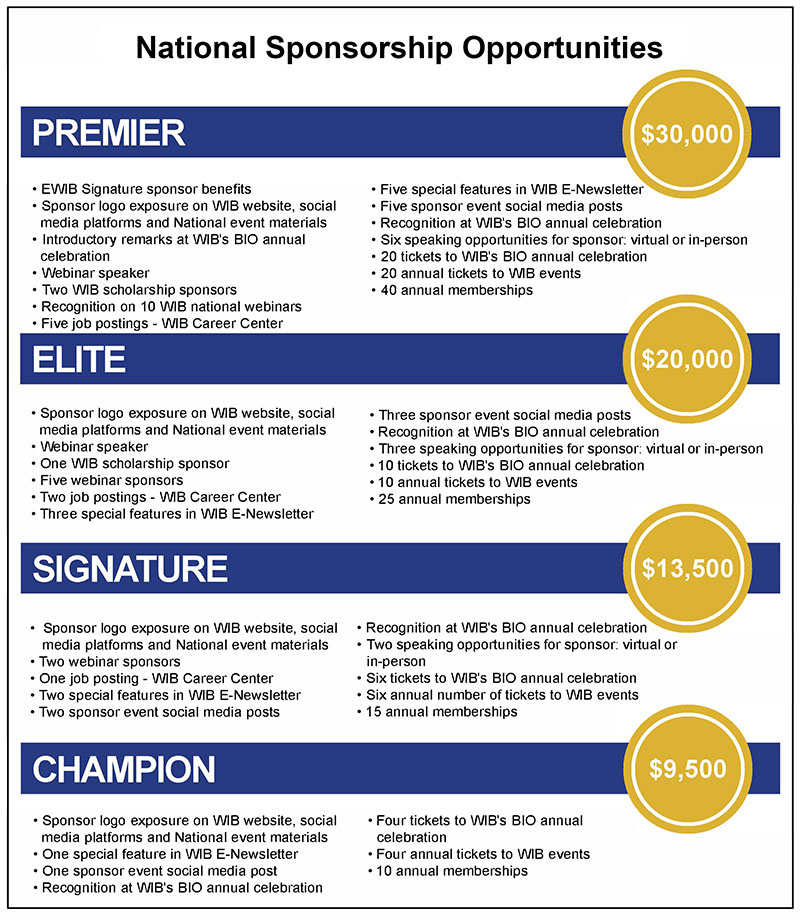
Image source: womeninbio.org
Securing sponsors for an event is a sure way to make more profit. But some partnerships offer more value than others. Go for high-value sponsorship opportunities instead of picking any sponsor.
Some things to think about before getting involved with a sponsor include:
- How relevant is the sponsor?
- How exciting is the person?
- Will customers be attracted or get the wrong impression about your event?
- Does the sponsor align with your brand?
- Does the person share the same values?
- Is the person just looking for an easy promotion?
- What tangible benefits will you get from the sponsorship?
It is crucial to look into the sponsor’s offer to make sure it is valuable. It is also important to see if the sponsor’s heart is in it. If the sponsor’s heart is not in it, you will not get a lot of value out of the relationship.
Event organizers that make a name for themselves might be hired by businesses to promote a product with an event. If an organizer is known for bringing in a crowd, they can set a high price for their services.
Develop a compelling sponsorship proposal
Create a detailed and persuasive sponsorship proposal that outlines the benefits and value of sponsoring your event. Include information about your event’s audience, reach, and the specific sponsorship opportunities available. Clearly articulate how sponsoring your event will help the sponsor achieve their marketing and business objectives. Highlight the visibility, engagement, and promotional benefits they will receive.
Offer tiered sponsorship packages
Design tiered sponsorship packages that offer various levels of benefits and exposure. Packages can range from basic options, such as logo placement on promotional materials, to premium options, like exclusive branding opportunities or speaking slots. By offering different levels, you can cater to a range of potential sponsors and their budgets, making it easier to secure support.
Highlight unique benefits and exposure
Emphasize the unique benefits and exposure opportunities that come with sponsoring your event. This could include high-visibility placements on event materials, digital platforms, and signage. Offer sponsors the chance to engage directly with attendees through booths, presentations, or interactive activities. The more value and visibility you can provide, the more attractive your sponsorship opportunities will be.
Tailor proposals to individual sponsors
Customize your sponsorship proposals to align with each potential sponsor’s goals and interests. Tailor your pitch to highlight how your event specifically meets their marketing needs and target audience. Personalizing your approach shows that you understand their business and increases the likelihood of securing their support.
Leverage existing relationships and networks
Use your existing professional network and relationships to approach potential sponsors. Personal connections can help you gain introductions or endorsements that make it easier to secure sponsorships. Reach out to industry contacts, previous sponsors, or partners who may have connections to potential sponsors.
Negotiate and finalize sponsorship agreements
Once you’ve identified interested sponsors, negotiate the terms of the sponsorship agreement. Discuss details such as sponsorship fees, deliverables, and timelines. Be clear about what each party is responsible for and ensure that the agreement aligns with both your event’s needs and the sponsor’s expectations. Finalize the agreement with a formal contract to ensure mutual understanding and commitment.
Sell tickets in multiple tiers
Selling tickets in multiple tiers is a strategic approach that can significantly increase your event’s revenue. By offering a range of ticket options, you cater to various audience preferences and budgets, which can help boost overall sales.
Offer different levels of access
Create several ticket tiers, such as general admission, VIP, and early-bird specials, to appeal to different segments of your audience. Each tier can provide different levels of access and benefits, like reserved seating, exclusive areas, or additional perks. This approach allows you to attract a wider audience and generate more revenue from those willing to pay extra for enhanced experiences.
Create a sense of urgency
Implement early-bird pricing or limited-time offers to encourage prompt purchases. This not only helps boost initial ticket sales but also creates a sense of urgency among potential attendees, making them more likely to commit early. The tiered pricing strategy can drive early revenue and help you gauge interest and demand for the event.
Maximize revenue through premium options
Include premium ticket options that offer exclusive benefits, such as backstage passes, meet-and-greet opportunities with speakers or performers, or access to special lounges. These high-tier tickets can command higher prices and attract attendees willing to invest more for a unique experience, increasing your overall revenue.
Bundle additional services
Consider bundling ticket tiers with additional services, such as event merchandise, VIP access, or post-event content. Offering these bundles can add value to higher-tier tickets and incentivize attendees to choose more expensive options, further boosting your revenue.
Implement upselling and cross-selling
Implementing upselling and cross-selling strategies can significantly boost your event’s revenue by encouraging attendees to purchase additional products or services. These techniques not only enhance the attendee experience but also increase your overall earnings. Here’s how to effectively apply upselling and cross-selling strategies to your event:
Understand your audience’s needs and preferences
Before implementing upselling and cross-selling, gain a clear understanding of your audience’s interests and preferences. This insight allows you to tailor your offers to meet their specific needs and maximize the chances of successful sales. Conduct surveys or analyze past event data to identify what additional products or services your attendees might value.
Create appealing upsell offers
Design upsell offers that provide added value to your attendees. Upselling involves encouraging attendees to upgrade their existing purchase for an enhanced experience. For example, if someone buys a general admission ticket, offer them the option to upgrade to a VIP pass that includes extra perks like better seating or exclusive access. Ensure that the upsell offer clearly communicates the additional benefits and justifies the extra cost.
Bundle products and services
Bundling products and services together can be an effective cross-selling strategy. Create packages that combine various elements of your event, such as tickets, merchandise, and additional experiences. For instance, offer a ticket bundle that includes access to workshops, event merchandise, and a post-event networking session. Bundling provides convenience and value, making it more appealing for attendees to purchase more.
Promote exclusive add-ons
Offer exclusive add-ons that enhance the event experience and appeal to your attendees’ interests. This could include items like event-specific merchandise, premium food and beverage options, or access to special sessions or areas. Promote these add-ons during the ticket purchase process, on your event website, and through marketing materials to increase visibility and attract additional sales.
Utilize personalized recommendations
Use personalized recommendations to suggest relevant upsells and cross-sells based on attendees’ purchase history and preferences. For example, if a customer purchases a ticket to a music festival, suggest related merchandise or access to exclusive backstage experiences. Personalized recommendations can increase the likelihood of additional purchases by aligning offers with the attendee’s interests.
Leverage email and social media marketing
Utilize email and social media marketing to promote upsell and cross-sell opportunities. Send targeted emails to ticket holders with offers for upgrades, add-ons, or exclusive content. Use social media platforms to highlight special deals or limited-time offers. Effective marketing helps keep your upselling and cross-selling offers top-of-mind for potential buyers.
Provide clear value propositions
Ensure that your upsell and cross-sell offers clearly communicate the value and benefits to attendees. Highlight how the additional purchase enhances their event experience or provides extra convenience. Clear and compelling value propositions help justify the additional expense and make attendees more likely to consider the offer.
Implement seamless purchasing options
Make it easy for attendees to purchase upsell and cross-sell items by integrating seamless purchasing options into your ticketing system. Provide a straightforward process for adding upgrades or additional items to their existing order. The simpler and more convenient the purchasing experience, the more likely attendees are to take advantage of these opportunities.
Monitor and analyze performance
Regularly track and analyze the performance of your upselling and cross-selling strategies. Review metrics such as conversion rates, average order value, and revenue from additional purchases. Use this data to refine your approach, identify successful tactics, and make adjustments to improve overall effectiveness.
Offer limited-time promotions and discounts
Create a sense of urgency with limited-time promotions or discounts for upsell and cross-sell offers. This can encourage attendees to make additional purchases quickly to take advantage of the special deals. Promotional tactics such as early-bird discounts or exclusive offers available only for a short period can drive higher conversion rates.
Provide premium experiences
This might be a bit more difficult when it comes to virtual events, but you can still do it.
In general, people pay more for extraordinary experiences. Organizers can take advantage of this and make higher conversions by offering exclusive adventures.
People are also willing to pay more when they feel like a company has invested in them. Offer a “first-class” type of experience by presenting exclusive luxuries. Sell a regular event ticket and a premium event ticket.
Some event organizers like bundling food and alcoholic beverages into the premium ticket. While offering food and drinks will drive the ticket price up, it can also eliminate profit. Be careful of the extra expense it takes to provide a large quantity of food and drink.
A better idea is to offer something that does not require a higher budget but gives attendees something of value.
Here are some ideas that can work with in-person and virtual events:
Identify desirable premium features
Start by identifying what premium features would most appeal to your target audience. Consider conducting surveys or reviewing feedback from previous events to understand what attendees value most. Premium experiences could include exclusive access, enhanced amenities, or unique interactions with key figures. The goal is to offer features that align with your audience’s interests and elevate their overall experience.
Create tiered premium packages
Develop tiered premium packages that offer different levels of exclusivity and value. For example, you could have a standard VIP package with basic perks, a deluxe package with additional benefits, and an ultimate package with the highest level of exclusivity. Each package should be clearly differentiated by the benefits it offers, such as front-row seats, backstage access, or exclusive networking opportunities.
Offer exclusive access and reserved areas
Provide premium ticket holders with exclusive access to reserved areas or special sections. This could include VIP lounges, private seating areas, or behind-the-scenes tours. These exclusive zones should offer enhanced comfort and additional amenities, such as premium refreshments, private restrooms, or dedicated staff. The exclusivity of these areas adds significant value to the premium experience.
Include personalized services
Enhance the premium experience by offering personalized services tailored to individual preferences. This could include personalized event itineraries, dedicated concierge services, or custom merchandise. Personalized touches make attendees feel special and valued, increasing their overall satisfaction and willingness to invest in premium options.
Host exclusive events or activities
Organize exclusive events or activities that are available only to premium ticket holders. This could include private meet-and-greet sessions with speakers or performers, exclusive workshops, or intimate networking events. These special activities provide unique opportunities that are not available to general attendees, making the premium ticket offer more attractive.
Offer high-end amenities
Incorporate high-end amenities into your premium packages to enhance the overall experience. This could include gourmet catering, luxury transportation, premium gift bags, or high-quality event merchandise. High-end amenities contribute to a sense of indulgence and exclusivity, making the premium experience more appealing.
Promote premium experiences effectively
Use targeted marketing strategies to promote your premium experiences. Highlight the unique benefits and exclusivity of the premium packages in your promotional materials, website, and social media campaigns. Use high-quality visuals and testimonials from past premium attendees to showcase the value and desirability of the premium options.
Provide exceptional customer service
Ensure that premium ticket holders receive exceptional customer service throughout their event experience. This includes providing dedicated support staff, quick resolution of any issues, and personalized attention. High-quality customer service enhances the overall premium experience and encourages repeat business and positive word-of-mouth.
Monitor and gather feedback
Regularly monitor and gather feedback from premium ticket holders to assess their satisfaction with the experiences offered. Use surveys, reviews, and direct feedback to understand what worked well and what could be improved. This information is valuable for refining your premium offerings and making future events even more appealing.
Leverage partnerships and sponsorships
Collaborate with partners or sponsors to enhance your premium experiences. Partners can provide additional value through sponsored perks, exclusive access, or high-end products. Leveraging these relationships can help you offer more attractive premium options and share the costs of providing high-quality experiences.
Sell merchandise
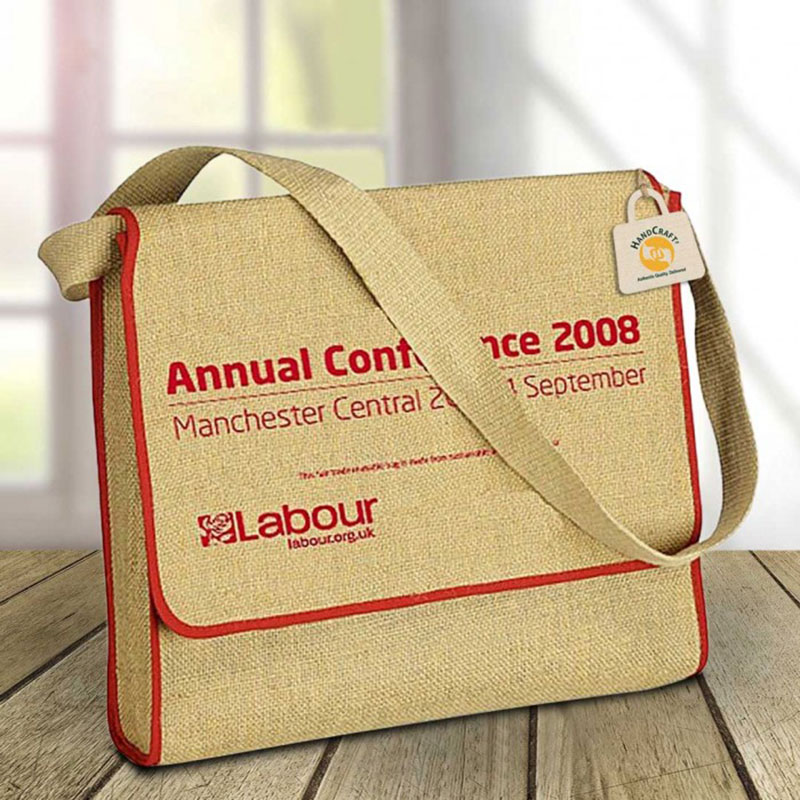
Everyone gets excited about free merchandise bags, and they are an excellent way to give out branded merchandise. But you might be missing out on a revenue opportunity by going this route.
Selling relevant and valuable merchandise to attendees is a great way to make more money. If you have your own products, make sure to sell them. The organizer of an event has the power to be the most influential vendor.
By offering event-specific or branded products, you can create a memorable experience for attendees and generate additional income. Here’s how to effectively implement a merchandise sales strategy for your event:
Design appealing merchandise
Start by designing merchandise that resonates with your event’s theme and audience. Consider items that are practical, stylish, and relevant to the event. Popular options include t-shirts, hats, tote bags, mugs, and posters. Incorporate eye-catching designs, logos, or event-specific artwork to make the merchandise desirable and memorable. The design should reflect the event’s branding and create a sense of exclusivity.
Set up an online store
Create an online store to sell your merchandise before, during, and after the event. An online store provides convenience for attendees who may want to purchase items ahead of time or those who are unable to attend the event in person. Ensure that the online store is user-friendly, secure, and optimized for mobile devices. Include clear product descriptions, high-quality images, and easy checkout options to enhance the shopping experience.
Offer limited-edition items
Introduce limited-edition merchandise to create a sense of urgency and exclusivity. Limited-edition items can drive higher sales by appealing to attendees who want unique or collectible products. Promote these items as special opportunities to enhance their perceived value and encourage quick purchases.
Promote merchandise through multiple channels
Use various marketing channels to promote your merchandise and drive sales. This can include your event’s website, social media platforms, email newsletters, and on-site promotions. Highlight the availability of merchandise and showcase popular or limited-edition items through engaging content and visuals. Effective promotion increases visibility and encourages attendees to make purchases.
Set up an attractive merchandise booth
If your event is in-person, set up a well-organized and visually appealing merchandise booth. Position the booth in a high-traffic area to maximize exposure. Ensure that the booth is staffed with friendly and knowledgeable personnel who can assist attendees with their purchases. Use attractive displays and signage to draw attention and make the booth inviting.
Offer bundle deals and discounts
Encourage larger purchases by offering bundle deals or discounts on merchandise. For example, you could offer a discount for purchasing multiple items or create special bundles that include a mix of products at a reduced price. Bundle deals provide added value and can boost overall sales by incentivizing attendees to buy more.
Provide a seamless purchasing experience
Ensure a smooth and efficient purchasing process for both online and on-site transactions. For online sales, offer multiple payment options and a streamlined checkout process. For in-person sales, use point-of-sale systems that accept various payment methods and expedite transactions. A seamless purchasing experience enhances customer satisfaction and increases the likelihood of repeat purchases.
Leverage event partnerships
Collaborate with event partners, sponsors, or influencers to promote and sell merchandise. Partners can help extend your reach by sharing information about the merchandise with their networks. Influencers can showcase the merchandise through their channels, driving interest and sales. Leveraging these relationships can boost your merchandise visibility and attract more buyers.
Track sales and gather feedback
Monitor merchandise sales regularly to assess which items are performing well and identify any trends. Gather feedback from attendees about their merchandise preferences and purchasing experiences. Use this information to refine your merchandise offerings and improve future sales strategies.
Plan for post-event sales
Continue selling merchandise after the event through your online store or through follow-up promotions. Post-event sales can generate additional revenue and allow attendees who missed out on purchasing items during the event to buy them later. Use email marketing and social media to remind attendees of the merchandise availability and encourage last-minute purchases.
Crunch the Numbers
The most important step of making money hosting events is to calculate the costs. Do this during the planning stages of the event.
There is no guessing when it comes to making a profit. Calculate the event’s expenses, like the speaker fees, venue fees, food and drink prices, etc.
Then calculate the predicted revenue from the tickets, merchandise, and advertising. Make sure that the expected income exceeds the expenses.
After the event, crunch the numbers again. Make sure you end up in the black and not the red. Focus on the choices and the interactions that led to the final numbers.
How much did the ad spaces make? Did the brand merchandise sell? What was the conversion rate on the premium tickets?
Ask yourself specific questions to know what to do and what not to do for the next event.
FAQs About Making Money Hosting Events
1. How can I make money hosting events?
Ticket sales, sponsorships, item sales, and the selling of food and beverages are just a few of the numerous ways that event hosts might generate income. The secret is to find the most lucrative revenue sources for your particular event and maximize your profits while still providing excellent service to your attendees.
2. How to generate revenue from an event?
You can generate revenue from an event by selling tickets, securing sponsorships, offering merchandise, and providing paid services like VIP packages or exclusive content.
3. How do you make money putting on an event?
To make money from an event, focus on ticket sales, securing sponsors, selling concessions or merchandise, and offering add-ons like workshops or special experiences.
4. What are the most profitable types of events to host?
Depending on your target market and location, different event styles are more profitable to host. However, music festivals, sporting events, conferences, trade exhibitions, and experiential events like escape rooms or immersive theatrical experiences typically bring in the most money.
5. How can I keep my event costs low while still generating revenue?
Consider working with sponsors and vendors to offer free or heavily reduced services in exchange for visibility or branding possibilities to reduce the costs of your event. Social media and digital marketing are other tools you may utilize to advertise your event and cut costs.
6. Should I charge for tickets or offer free admission and make money from sponsorships?
Depending on the objectives of your event and the target audience, you may decide to charge for tickets or provide free entry. Offering free entrance can help you reach a wider audience and increase revenue from sponsorships and merchandise sales, whilst charging for tickets can help you make money directly from attendance.
7. How can I attract sponsors for my event?
Create a convincing sponsorship proposal for your event that details the advantages of supporting it, such as brand visibility, access to your audience, and promotional opportunities. Additionally, you should study potential sponsors and modify your proposal to suit their unique requirements and preferences.
8. What are some alternative revenue streams for event hosting besides ticket sales and sponsorships?
In addition to parking fees and product and food and beverage sales, extra services like coat check and guided tours can also be charged for. You might also think about charging extra for VIP packages or premium experiences.
9. How can I maximize my profits without compromising the quality of my event?
Focus on producing a wonderful guest experience that will draw favorable evaluations and word-of-mouth referrals if you want to increase your income without sacrificing the caliber of your event. You can also search for ways to cut expenses without compromising quality, such as hiring volunteers or forming alliances with businesses that offer complimentary services.
10. Are there any legal or regulatory considerations I should be aware of when monetizing my event?
Yes, while monetizing your event, there are a number of legal and regulatory concerns to be aware of, such as tax duties, insurance requirements, and licenses or licenses required for specific activities or services. To prevent fines or legal troubles, it’s crucial to learn about and abide by all applicable rules and regulations.
11. What are some best practices for budgeting and financial management when hosting an event?
The best practices for budgeting and financial management when hosting an event include developing a thorough budget that accounts for all costs and revenue sources, routinely reviewing and updating your budget, negotiating with vendors and sponsors to lower costs, and setting reasonable revenue goals based on your target market and market trends.
Contingency plans should be in place in case of unforeseen costs or revenue deficits.
Ending Thoughts on How to Make Money Hosting Events
Hosting a profitable event is about offering valuable elements that attendees are willing to pay for. The first step in doing so is to understand what your target customers want.
The next step is to figure out which events are most profitable for your business at present. Figure out which events are within your budget, but that will pique a lot of interest. If possible, move the events to an online platform to reduce costs and reach a wider audience.
Next, analyze what areas of marketing need improvement. Do you need to sell more ad space, offer more merchandise, or acquire better speakers?
The true key to making money hosting events is knowing where to focus your time and budget. Think smart about your offerings, and you will be sure to run a successful and profitable event.
More Resources for Event Managers
If this article on how to make money hosting events was useful, you’ll be happy to hear that we have even more resources for event managers:
- Top Hybrid Event Ideas & Examples for Greater Engagement
- Top Event Planning Tips: How to Organize a Successful Event with Proven Strategies
- How to Set up Recurring Events on a WordPress Website
- How to Get Sponsors for An Event? The Ultimate Guide
- Virtual Event Best Practices in 2024 for Succesful Execution
- Writing Event Planning Business Plan: Step-by-Step Guide
- How to Price Event Planning Services?


